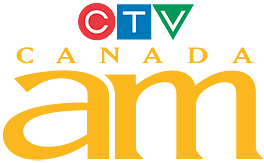For some people, finding
the right job in an industry that excites you is an easy choice. When we’re little, we always have an idea of
what we want to be when we grow up. More
often than not, we don’t always get to realize that. As we grow older, not only do our interests
change, but our realities change as well.
The world can only have so many ballerinas, actresses, or professional
ball players.
Therefore, facing the
reality that you probably won’t be doing what you thought you’d be doing back
when you were eight years old can be a painful thought. However, some people do get to be what they
always wanted to be. One man this writer
knows had always dreamed of being a police officer. This can be a difficult field to get into and
doesn’t always happen overnight.
He knew that he’d have to
work at it, but he also knew that he had to support his family. So he went to work in the family business and
would test for the police department as openings were advertised. He could pass the tests, but would find
himself in the lower part of the list that was compiled for possible new hires. For three years, he worked and waited.
Then, he had a successful
tryout for one particular police department and found himself number two on the
list. It just so happened that this
particular force was hiring two officers and he was hired soon after. His dream had come true and he has had a
successful career as a police officer and has received several awards for his
police work.
Making a career change
decision was easy for him. It was easy
for this writer too.
Since I was little, all
I’ve ever dreamed of doing was teaching.
When I graduated from high school, my college major was education. I knew that I’d have to have extensive
education if I was going to be a teacher, but I was committed to it and eagerly
attended my classes with a goal in my mind.
Then, life changed. I suddenly found myself with two children, a
husband who was also attending college, and bills piling up. My husband’s part-time job just wasn’t
cutting it. It was decided that I would
be the one to go to work since he was further along in school than I was. I took a job as a secretary and toiled away
at similar jobs like that for six years.
I still took classes trying
to work for my degree, but I was working full-time in jobs that I really didn’t
like. I found myself in the sales field
eventually. While the money was terrific
and I was good at selling, I still was unfulfilled. I would go to my children’s parent-teacher
conferences and find that longing to be a teacher still aching in the back of
my mind as I spoke to their teachers and wandered the hallways of their school.
Then, life changed
again. Only this time, it changed for
the better. Our finances had finally
reached the point where it would be possible for me to quit my job and attend
school full-time to earn my bachelor’s degree.
It took two and a half years and some very hard work, but I was rewarded
when I walked across the stage at my college and received my diploma with a
Bachelor of Science degree in Elementary Education.
Now, I am a certified
teacher – and a freelance writer – and am more satisfied now than I have ever
been. While it was scary to make this
drastic career change, it really was a no-brainer when it came to deciding what
I wanted to do.
The point is that if you’ve
always dreamed of working in a specific career field and it’s possible for you
to do so – even with a little hard work – go for your dreams and don’t stop
until you realize them.
For some people, however, a
career change decision isn’t as easy as mine was. They know they are unhappy in their current
job and want to get out, but they really don’t know what they want to do. Perhaps, also, they have a couple of ideas in
their minds but are unsure as to which was to go.
High school graduates are
also faced with an important decision when it comes to their career field. So many young people go to college taking
core classes without knowing what they want their major to be.
So, are there certain
things you need to consider when choosing a career field? In fact, there are many things that you need
to keep in mind. You will want to be
successful in whatever job field you choose, so it can be very important to be
sure you are going to go into a business where you will be happy and where you can
realize your full potential.
There are all sorts of
tests you can take online that can help with your career field. What is a career test? It’s a series of questions you answer based
on what your preferences are or how you feel about specific job
situations. The test will then analyze
your answers and present you with the top jobs that fit you based on those
answers. Some of the more accurate and
reliable online career tests require you to purchase a membership or a package
to get your results, but you can find some free career tests.
I took one test at www.livecareer.com and it was quite
eye-opening. It was no surprise that the
two job fields they recommended to me were writing and education! This website and test are free to users due
to the sponsors that want you to sign up for information, so you do have to
click through a lot of advertisements, but if you are not sure which career
field you want to work in, this test can be a great place to start.
Of course, you can
“purchase” a more detailed and in-depth report at the end of the test which is
what they want you to do, but that is strictly optional. I’ve found that most of the career testing
sites will do this as well.
The basic format of many of
these career tests are the same, for the most part. You are presented with three situations and
you pick which one you prefer most and which one you prefer least. This is how they can find where your
interests lie as well as where your abilities and talents can be best utilized.
Of course, when considering
a career change or choice, you don’t necessarily have to take a test. Take a look at what you enjoy doing. What have people said you are good at? Where could you be happiest? What are your interests and hobbies? You should also classify what’s important to
you and where you could make concessions.
For example, if spending
time with your family is a priority, you probably won’t want a job that
requires extensive travel or overtime such as sales. If you are single or very career driven, you
may want to look at a position that can provide for upward mobility when you
put in hard work such as marketing or stocks.
What types of jobs are
available to you? The choices are
limitless and you will want to take a lot of things into consideration before
you make the leap towards a career change.











